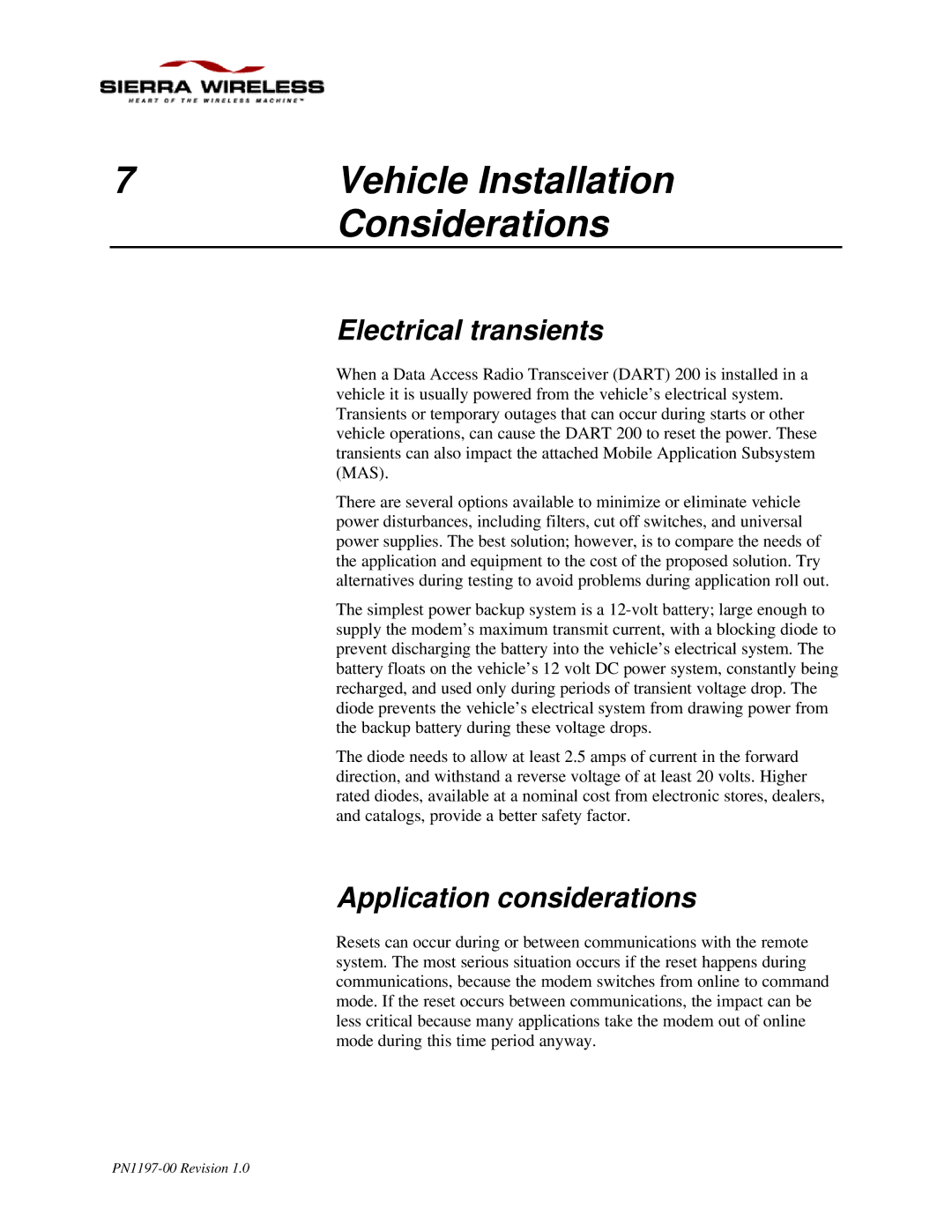7 | Vehicle Installation |
| Considerations |
Electrical transients
When a Data Access Radio Transceiver (DART) 200 is installed in a vehicle it is usually powered from the vehicle’s electrical system. Transients or temporary outages that can occur during starts or other vehicle operations, can cause the DART 200 to reset the power. These transients can also impact the attached Mobile Application Subsystem (MAS).
There are several options available to minimize or eliminate vehicle power disturbances, including filters, cut off switches, and universal power supplies. The best solution; however, is to compare the needs of the application and equipment to the cost of the proposed solution. Try alternatives during testing to avoid problems during application roll out.
The simplest power backup system is a
The diode needs to allow at least 2.5 amps of current in the forward direction, and withstand a reverse voltage of at least 20 volts. Higher rated diodes, available at a nominal cost from electronic stores, dealers, and catalogs, provide a better safety factor.
Application considerations
Resets can occur during or between communications with the remote system. The most serious situation occurs if the reset happens during communications, because the modem switches from online to command mode. If the reset occurs between communications, the impact can be less critical because many applications take the modem out of online mode during this time period anyway.
